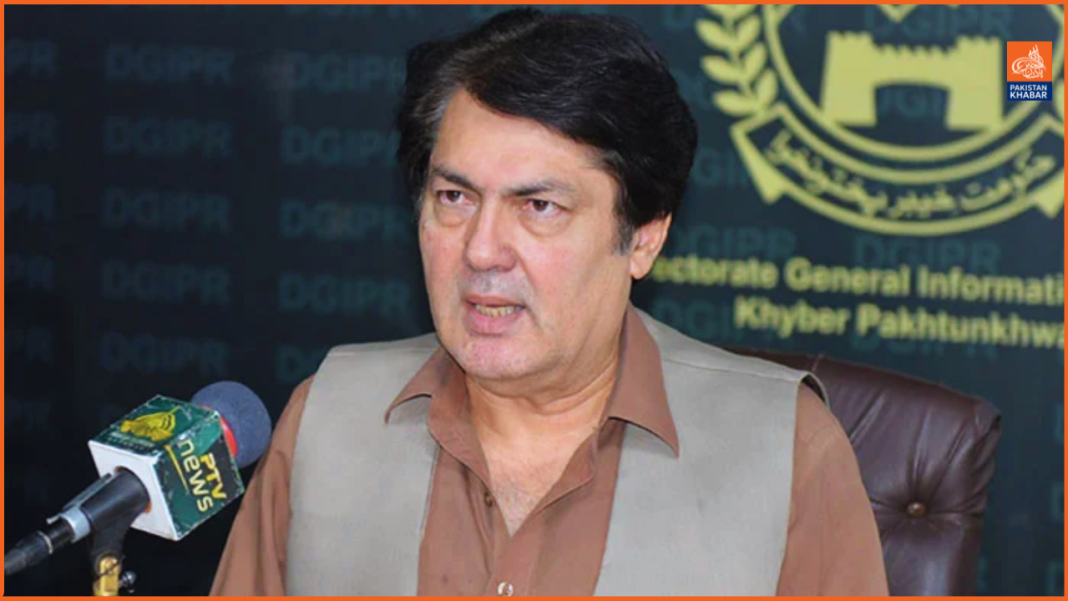The statement made by Barrister Mohammad Ali Saif, the spokesman for the Khyber Pakhtunkhwa government, on Wednesday night—that the banned Pashtun Tahaffuz Movement (PTM) could not be permitted to hold a jirga in the province—has sparked outrage among leaders and supporters of the ruling Pakistan Tehreek-i-Insaf (PTI).
Numerous PTI lawmakers, leaders, and supporters took to social media to express their anger over the deaths of PTM activists in police firing in Khyber. Many announced their intention to attend the funerals of those who lost their lives.
Provincial ministers and assembly members condemned the fatalities during a session in the assembly. Mr. Saif released a video statement around 9 PM, stating that since the federal government has banned the PTM, the organization would not be allowed to hold any jirga in the province.
This announcement incited further backlash, with various PTI leaders criticizing Mr. Saif. Most viewed his statement as contradictory to the stance of both the provincial government and the PTI’s political committee.
Prominent PTI figures, including provincial general secretary Ali Asghar Khan, former lawmaker Murad Saeed, and MNAs Ali Mohammad Khan, Junaid Akbar, Sher Ali Arbab, Gul Zafar Khan, and former provincial minister Taimur Saleem Jhagra, publicly condemned the crackdown on social media. PTI Peshawar region president Mohammad Asim Khan and Peshawar president Irfan Saleem were also among those expressing criticism.
Higher Education Minister Meena Khan Afridi stated that the remarks made in the assembly and the political committee’s statement reflect the PTI’s official policy on the issue. He explained that prior to the PTM’s federal ban, the chief minister had met with PTM leader Manzoor Pashteen, requesting that the organization refrain from anti-army slogans and bringing Afghan flags to events, a request that Pashteen accepted.
He noted that the chief minister had remained in office until midnight following the recent incidents to arrange a multi-party jirga to prevent further violence.
While Afridi acknowledged the PTI’s clear stance, he expressed confusion over why the government spokesman made such a controversial statement.
Irfan Saleem, president of PTI district Peshawar, lambasted the spokesperson, labeling him a “tout” of the security establishment after his statement was released. He asserted that PTI founder Imran Khan had supported the PTM’s demands and opposed the ongoing conflict in tribal districts since 2002.
Saleem criticized Saif’s statement as unnecessary, suggesting that he lacks the legitimacy as a representative of the people and has made no substantial contributions to the party’s cause. He emphasized that PTI supports civilian supremacy and human rights, rejecting the federal government’s actions against the party’s leadership and workers.
He accused the Khyber Pakhtunkhwa chief secretary and police chief of being federal puppets, placed in their positions to create difficulties for PTI activists. Saleem reiterated his commitment to standing by innocent people in their struggle for rights.
MNA Junaid Akbar noted that the leadership’s strong reaction was likely due to their own experiences with state coercion. He indicated that the harsh response stemmed from the party’s firsthand encounters with oppressive government policies.
He stated, “The measures taken against the PTM are unjustified, much like the actions of the federal and Punjab governments against the PTI. State oppression will not eliminate people’s movements; instead, it only increases support for them.”
Several PTI leaders attended the funeral prayers of PTM workers who died in the police firing, demonstrating solidarity in their grief.




